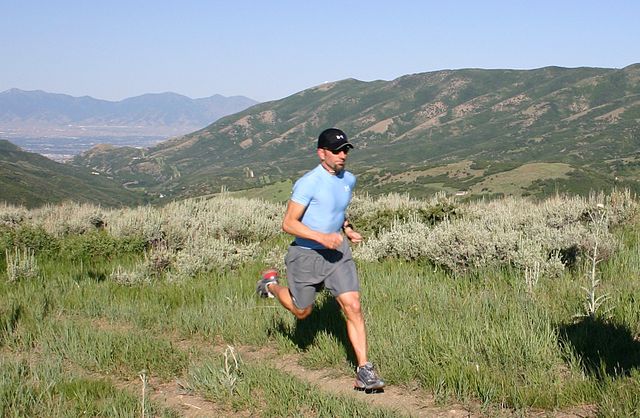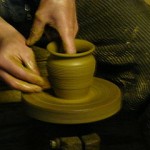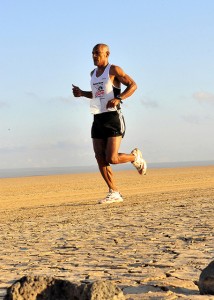 I like long races–ultramarathons, half-Ironman and Ironman triathlons, hundred mile bike rides. Endurance, more than speed, is my game. As any endurance athlete knows nutrition is key to a good race. I once heard an ultramarathoner describe racing 26.2 mile plus distances as an eating contest with some running thrown in. Too much, too little, the wrong mix can cause an endurance athlete to fall short of the goal and perhaps even fail to finish the race. Its for that reason that many endurance athletes work to train their bodies to become fat-adapted.
I like long races–ultramarathons, half-Ironman and Ironman triathlons, hundred mile bike rides. Endurance, more than speed, is my game. As any endurance athlete knows nutrition is key to a good race. I once heard an ultramarathoner describe racing 26.2 mile plus distances as an eating contest with some running thrown in. Too much, too little, the wrong mix can cause an endurance athlete to fall short of the goal and perhaps even fail to finish the race. Its for that reason that many endurance athletes work to train their bodies to become fat-adapted.
Your body has its pick of fuels–your muscles can burn fat, carbs, even proteins and you can train your body to become more efficient at burning one over the other. To be fat adapted means that your body has efficient access to its stored fat calories during a race. At an aerobic level even the leanest athlete has tremendous reserves of fat to burn during a race, far more than stored carbohydrates that run out after only a couple of hours. The problem is that many athletes have trained their bodies to run on sugar and don’t have an efficient way to access their fat stores. They run out of energy in a race, even while running at an aerobic level, well before their reserve of fat calories is gone.
I thought of fat-adaptation yesterday as I read an essay in Dallas Willard’s The Great Omission. Willard was talking about fasting as “one way of seeking and finding the actual Kingdom of God present and active in our lives.” Along with practices like silence and solitude, fasting is meant be a way of training ourselves to live our lives within God’s life. What was surprising was that Willard described fasting as a way to “experience the direct sustenance of God to our body and our whole person.”
Fasting as it is usually expressed is a bodily discipline meant to achieve a spiritual reality. We deprive our bodies of food so that we can seek God more deeply in our spirits. Fasting could even be seen as a way of putting aside the body and its needs in order to more deeply develop our spiritual selves. But what Willard is saying here is something quite different. Willard is saying that fasting is not only for our spirits, but for our bodies, our whole person.
And here is where the idea of endurance racing and fat-adaptation comes in. Willard is saying that just as an endurance athlete must train her body to become efficient at sustaining itself on fat, so God-seekers should train their bodies to become efficient at living from God’s presence and power. Fasting is a way of training our bodies to switch our fuel sources from our own limited power and presence in the world, bodily and otherwise, and to live from God’s power and abundance. Elsewhere Willard has said that Jesus’ miraculous forty day fast in the desert did not mean that he was weak when he met the devil and the devil’s temptations, but rather that Jesus after forty days of training himself to live from God’s power was at his most powerful.
This is a different way of thinking of fasting–not as a way of deprivation, but as a way of learning to live in our bodies from God’s power. Our bodies are the primary vehicle through which we live in the world. Christianity is not a religion of spiritual beings, but of embodied beings. It is necessary then that we train our bodies to live from God as our center. Try it, see what power and sustenance God can provide to your body. There is nothing wrong with food and drink, but there are times when we need to train ourselves to live from our most powerful and extensive source of energy. God’s direct power and sustenance for our bodies goes far beyond what bread alone, or any food for that matter, can provide.
















